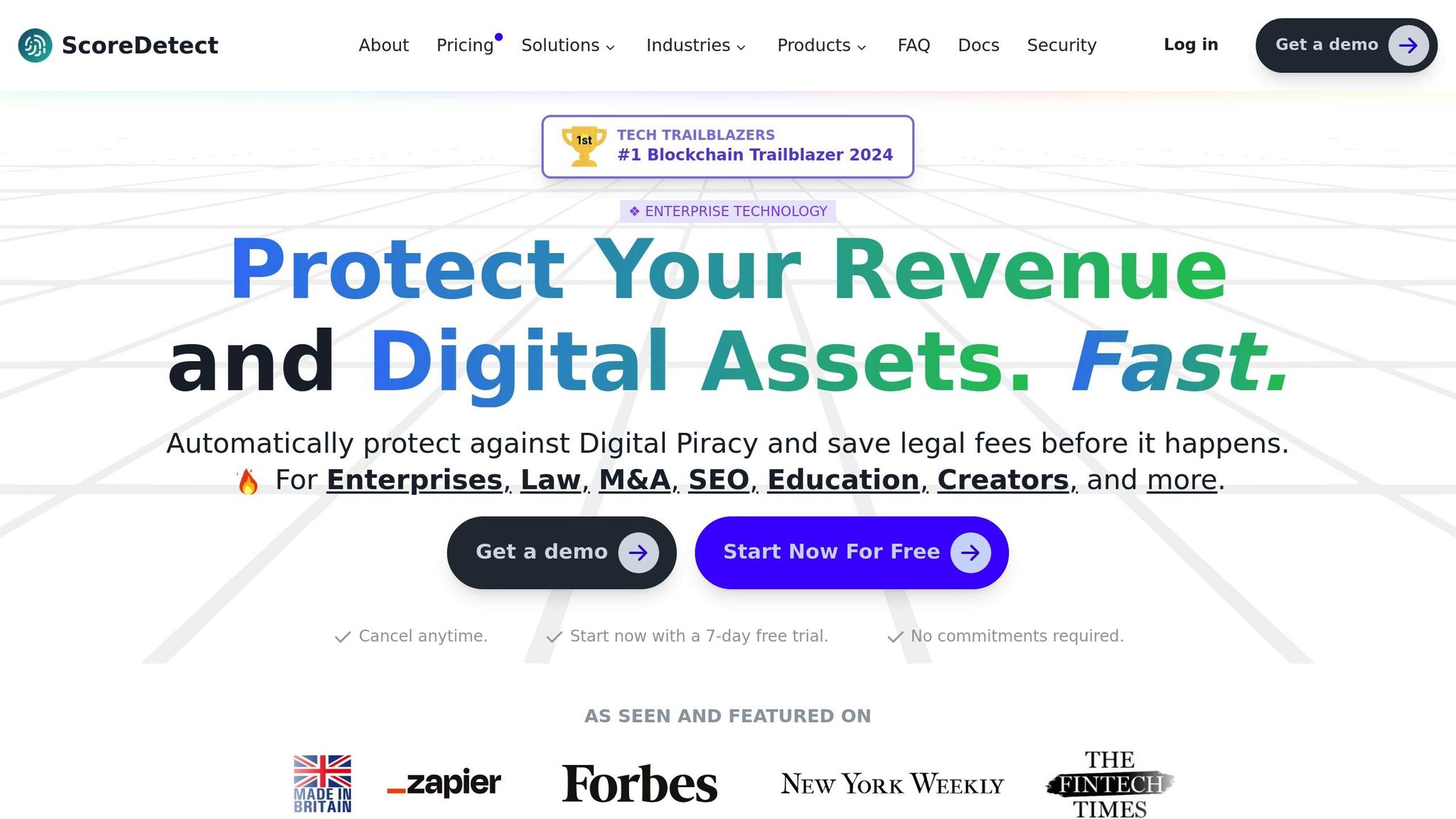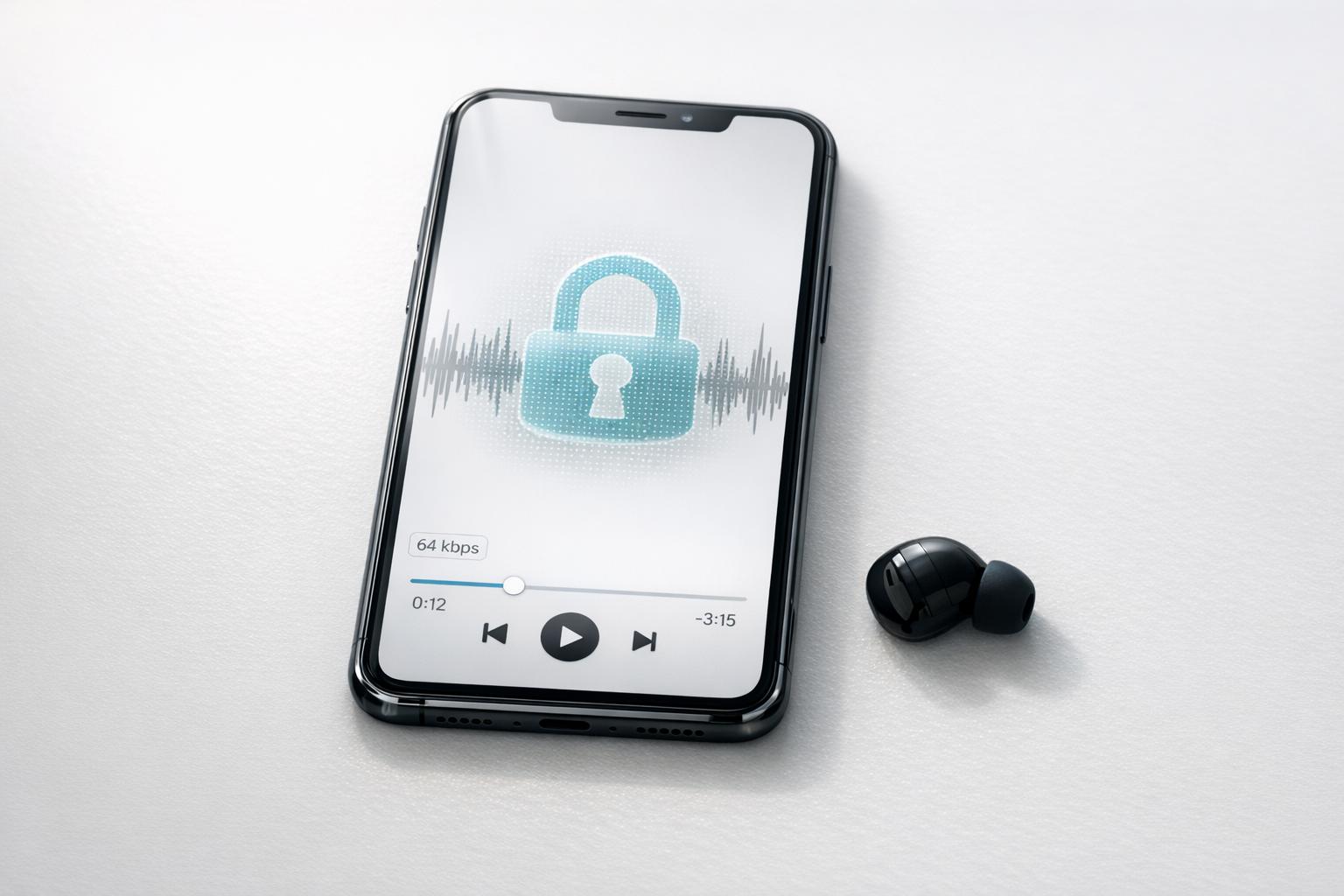Blockchain certification is a game-changer for digital asset platforms. It ensures platforms meet strict security, compliance, and operational standards, addressing key issues like fraud, data integrity, and regulatory uncertainty. By undergoing rigorous audits, certified platforms build confidence among users, institutions, and regulators, making them more reliable and secure.
Key takeaways:
- Trust through verification: Certification confirms adherence to security and compliance standards.
- Fraud prevention: Transparent and auditable systems reduce risks.
- Regulatory alignment: Certified platforms navigate complex U.S. regulations effectively.
- Industry impact: Examples like De Beers, Walmart, and Artory show certification’s role in improving operational integrity across sectors.
With blockchain certification, platforms not only secure digital assets but also foster transparency and accountability, paving the way for broader adoption and institutional trust.
Become a Certified Blockchain Security Professional | Blockchain Council

Research Findings: How Blockchain Certification Improves Digital Asset Trust
Global spending on blockchain solutions is forecasted to hit $19 billion in 2024, with the enterprise blockchain market expected to expand to $246 billion by 2030 [2]. These figures reflect growing confidence in certified blockchain systems.
Certification strengthens trust through transparency, traceability, and immutability [1]. By undergoing rigorous certification processes, digital asset platforms show their commitment to high security standards and provide users with verifiable proof of their operational integrity. Below, we explore how certifications enhance user trust and support regulatory compliance.
Transparency and Accountability Through Certification
Blockchain certification plays a vital role in reducing fraud and misuse by creating systems that are both transparent and auditable. It standardizes how traceability data is captured and shared, making it nearly impossible to alter records without detection [3].
Take, for example, De Beers’ Tracr system, which uses a permissioned blockchain to certify diamonds by documenting their attributes and transaction history. This allows customers to verify whether a diamond is conflict-free [1]. Similarly, DNV‘s private blockchain system issues and manages certificates, enabling customers to confirm compliance by simply scanning a QR code [1].
The impact of blockchain certification extends beyond individual transactions. For instance, Walmart’s blockchain system tracks produce like leafy greens from farm to table, ensuring quick traceability and improved food safety [3]. This transparency is underscored by data showing a 40% increase in assets under management for exchanges offering segregated wallets and audited reserves since 2023 [4].
Education has also embraced blockchain’s transparency. BlockCerts, a collaboration between MIT and Learning Machine, issues digital educational certificates. This reduces the time and expense for institutions and employers to verify qualifications [1].
Meeting U.S. Regulatory Standards
Blockchain certifications equip platforms to navigate the complex U.S. regulatory landscape, addressing areas like AML/KYC requirements, data protection, sanctions compliance, and ICO regulations [5].
The demand for regulatory expertise is evident. LinkedIn identified blockchain as the most sought-after hard skill in 2020 [6], highlighting the need for certified professionals who can bridge the gap between technology and compliance. With 65 million Americans owning crypto and 82% of clients expecting their advisors to understand cryptocurrency [7], the pressure to meet regulatory standards has never been greater.
Government agencies are also recognizing blockchain’s potential to improve accountability. This has led to clearer regulations, encouraging broader adoption of blockchain technology [2]. Certified platforms not only meet these evolving standards but also position themselves as trustworthy partners for institutional investors and traditional financial institutions. Certification, therefore, ensures compliance while enhancing the security of digital assets for users.
Case Studies and Industry Examples
Certified blockchain practices deliver measurable benefits, as seen in various industries. CoinJar, an Australian exchange, secured an Australian Financial Services License (AFSL) in early 2024. By Q1 2025, its stock rose 22%, driven by institutional investors valuing its compliance-focused approach [4].
In healthcare, HealthCerts, developed by Singapore’s Government Technology Agency and Ministry of Health, uses blockchain to authenticate COVID-19 vaccination and test result certificates. This system enables fast verification and informed decision-making [1].
The art world has also adopted blockchain certification. Artory uses the Ethereum blockchain to issue digital certificates of authenticity for artworks and collectibles, ensuring verifiable provenance [1]. In energy markets, The Energy Exchange Istanbul introduced the Renewable Energy Guarantees of Origin (YEK-G) system to certify electricity from renewable sources, simplifying documentation and proof of origin [1].
These examples show how blockchain certification fosters trust, ensures compliance, and boosts market performance. Its ability to create unchangeable records and transparent processes makes it especially valuable in industries where trust and verification are critical.
Blockchain Security Certifications: Standards and Practices
As blockchain technology continues to grow in importance, so does the need to secure digital assets effectively. Blockchain security certifications play a vital role in setting standards that organizations can follow to showcase their commitment to robust security measures and regulatory compliance. For businesses dealing with digital assets, understanding these certification standards is key to maintaining trust and safeguarding their systems.
Key Certification Standards Explained
One of the most prominent frameworks in blockchain security is the CryptoCurrency Security Standard (CCSS). Developed and managed by the CryptoCurrency Certification Consortium (C4), the latest version, CCSS 9.0 (set for release on December 17, 2024[8]), provides a detailed and structured approach to securing cryptocurrency systems. This standard complements traditional IT security frameworks, such as ISO 27001:2013[8], by addressing blockchain-specific challenges.
For professionals, certifications like the Certified Blockchain Security Professional (CBSP), offered by the Blockchain Council, provide targeted training in blockchain security techniques[9]. Similarly, the Certified Blockchain Security Expert (CBSE) certification from 101 Blockchains focuses on equipping individuals with hands-on skills to secure blockchain systems effectively[10].
Comparison of Certification Programs
Here’s a quick overview of some major blockchain security certifications and their focus areas:
| Certification Name | Issuer | Key Focus Areas |
|---|---|---|
| CCSS (System Certification) | CryptoCurrency Certification Consortium (C4) | Securing cryptocurrency systems and digital assets; requires annual audits[8] |
| CCSSA (Auditor Certification) | CryptoCurrency Certification Consortium (C4) | Auditing blockchain systems with a peer-reviewed process[8] |
| CBSP | Blockchain Council | Building blockchain security expertise for professionals |
| CBSE | 101 Blockchains | Developing advanced skills for securing blockchain systems |
The CCSS audit process stands out for its rigor. Organizations are audited annually, ensuring they consistently uphold security standards rather than meeting them only at the time of certification. This structured approach not only evaluates current security measures but also emphasizes their maintenance over time. Each certification serves a distinct purpose, from system-level security to professional training, contributing to a more secure blockchain ecosystem.
Continuing Education and Certification Updates
Blockchain security is a constantly evolving field, requiring certifications to adapt to emerging threats and technologies. The CCSS Steering Committee ensures that the standard remains relevant by regularly updating it to align with industry best practices. Organizations pursuing CCSS certification must collaborate with an approved CryptoCurrency Security Standard Auditor (CCSSA) to initiate the audit process[8].
The certification process involves multiple layers of quality control, including peer reviews and arbitration by the CCSS Steering Committee[8]. These audits and updates ensure that certification standards stay current with technological advancements and regulatory changes. For example, regular updates not only enhance the robustness of these certifications but also help build trust with clients and regulators.
For organizations utilizing blockchain to protect digital assets – such as those employing technologies like ScoreDetect’s checksum system – these certifications provide a solid framework to demonstrate their security capabilities. By adhering to recognized standards, businesses can establish credibility and reassure stakeholders of their commitment to safeguarding digital assets.
sbb-itb-738ac1e
Practical Applications: Certified Blockchain Practices in Digital Asset Protection
Certified blockchain practices bring a practical layer of trust and security to digital asset protection, addressing both regulatory requirements and operational efficiency.
ScoreDetect‘s Blockchain-Based Content Protection

ScoreDetect uses blockchain to safeguard digital content by creating automated certificates that verify ownership and timestamp creation. Instead of storing actual assets, it captures content checksums, ensuring privacy. Its invisible watermarking and timestamping features close security gaps that often arise from manual processes.
With a 95% success rate in content discovery and a 96% takedown rate, ScoreDetect has proven its effectiveness. The platform integrates with over 6,000 web applications via Zapier and offers an Enterprise plan with 24/7 monitoring, making it adaptable for both individual creators and large-scale organizations.
These secure and scalable practices demonstrate how blockchain can address diverse industry challenges.
Benefits Across Key Industries
Certified blockchain practices cater to a range of industries, each leveraging the technology to meet specific digital asset protection needs. The market for blockchain is projected to grow from $23.55 billion in 2024 to $152 billion by 2029, reflecting its expanding role across sectors[13].
- Banking and Finance: Ripple enables real-time cross-border payments, minimizing fraud while ensuring compliance with regulations[13]. Notably, 81% of the largest public companies globally are already utilizing blockchain technology[13].
- Healthcare: Platforms like Medicalchain securely store patient health records, giving patients control over access while preserving data integrity[13].
- Supply Chain and Logistics: Companies such as Maersk use blockchain for real-time data sharing and tracking, ensuring transparency in operations that rely on multiple stakeholders[11][13].
- Government Services: Blockchain is transforming public record management and real estate transactions, reducing administrative burdens and building public trust in government services[13].
- Media and Entertainment: Platforms like Audius ensure artists are paid fairly and directly, revolutionizing royalties and compensation models[13].
- Education: Institutions like the University of Nicosia issue blockchain-based academic certificates, streamlining verification processes and combating credential fraud[13].
Integrating Certification with Digital Asset Tools
Integrating blockchain certification into existing digital asset tools requires careful planning to maintain security while supporting operational workflows. The goal is to enhance daily processes without introducing inefficiencies.
APIs play a key role here, enabling smooth integration of certification systems without disrupting operations[11]. Blockchain’s ability to preserve and protect data aligns seamlessly with existing backup and security infrastructures, offering additional layers of reliability[11].
IBM describes blockchain as a "trustless" network – not because trust is absent, but because participants don’t need to rely solely on trust. Instead, the system itself ensures reliability through transparency and automation[12]. Blockchain certification simplifies compliance, particularly for data-heavy industries, by streamlining system management and regulatory processes[11].
Privacy remains a top priority. Blockchain certification addresses this by capturing checksums or metadata rather than storing sensitive content, striking a balance between verification and confidentiality. For example, ScoreDetect’s automated certification integrates with existing IT systems, reinforcing both security and compliance. Faster, verifiable data exchanges enabled by blockchain certification also reduce fraud and abuse, particularly in sectors like insurance[12].
Conclusion: The Future of Blockchain Certification in Digital Asset Trust
Key Takeaways
Blockchain certification is becoming the backbone of trust in the digital asset space. Studies show that certified platforms achieve impressive results, such as a 95% content discovery rate, within a multitrillion-dollar industry. This highlights how blockchain has transitioned from an experimental concept to a practical tool that ensures security and transparency.
The unique transparency and unchangeable nature of blockchain certification effectively tackle long-standing security issues in digital asset management. According to Wells Fargo Advisors, digital assets now provide enhanced data security and privacy[14]. In fact, illicit activities accounted for just 0.34% of all digital asset transaction volume in 2023[14], showcasing the growing reliability of this ecosystem.
Regulatory advancements are also playing a vital role in boosting blockchain adoption. For instance, the CLARITY Act of 2025 aims to refine key definitions and grant the CFTC authority over digital commodity intermediaries[16]. These measures are designed to build consumer confidence and attract more institutional players.
Moreover, blockchain certification is driving progress in areas like interoperability and environmentally friendly solutions. These advancements are paving the way for the next wave of trends that will shape the future of blockchain certification.
Looking Ahead
The future of blockchain certification points to rapid growth and deeper integration across industries. Gartner predicts a significant jump in blockchain deployment, from 8% to 46% by 2025, while the market for AI and blockchain integration is expected to surpass $703 million in the same year[19]. Additionally, the tokenization of real-world assets could hit $600 billion by 2030[17].
Interoperability and standardization will be critical as blockchain certification continues to evolve. Bridging gaps between different blockchain networks and legacy systems will require unified standards to ensure smooth integration.
The environmental impact of blockchain is also improving. The shift to proof-of-stake mechanisms is gaining traction, as shown by over 33.8 million ETH staked by more than one million validators on the Ethereum network as of September 2024[15]. This shift reflects a growing commitment to energy-efficient blockchain solutions.
Financial institutions are increasingly diving into digital asset strategies, focusing on areas like tokenization, private wealth services, and digital asset custody[18]. In line with this trend, the number of banks issuing tokenized assets is projected to double in 2025[17], signaling that certified blockchain practices are becoming mainstream.
Education and practical implementation will be key to success in this dynamic landscape. As the Global Investment Strategy Team at Wells Fargo Advisors emphasizes:
We expect further growth in digital assets and believe education is paramount when considering these assets as investments[14].
Organizations that prioritize training programs and establish Centers of Excellence in blockchain technology will be well-positioned to capitalize on the benefits of certification while maintaining compliance and security.
Blockchain certification is more than just a technological step forward – it’s the foundation for building trust across diverse digital asset ecosystems. From healthcare to supply chain management, the future will favor organizations that adopt certified practices and focus on delivering measurable, practical results.
FAQs
How does blockchain certification build trust in digital asset platforms?
Blockchain certification plays a key role in establishing trust within digital asset platforms by guaranteeing genuine ownership, strong security, and clear transparency. By creating records that cannot be altered, it minimizes the chances of fraud or unauthorized activities, giving users and investors peace of mind about the platform’s dependability.
On top of that, blockchain certification offers a consistent method to confirm ownership of digital assets. Using a decentralized and unchangeable ledger, it reinforces confidence in the platform’s operations while protecting digital assets from tampering or exploitation.
How does blockchain certification enhance trust and operational integrity in various industries?
Blockchain certification is making waves in how industries ensure trust and operational integrity. Take the pharmaceutical industry, for instance – blockchain helps track and verify the authenticity of medications, ensuring they meet safety standards and regulatory compliance. Meanwhile, in supply chain management, it creates tamper-resistant records, boosting transparency and accountability at every step.
By offering secure and verifiable proof of authenticity, blockchain certification helps organizations cut down on fraud, uphold trust, and simplify operations in today’s digital landscape.
How can blockchain certifications help U.S. platforms meet regulatory requirements?
Blockchain certifications give professionals the tools they need to handle the intricate regulatory environment in the U.S. These certifications delve into crucial compliance topics like anti-money laundering (AML) laws, securities regulations, and other legal frameworks. They also help businesses stay ahead of new legislation, such as the proposed Financial Innovation and Technology for the 21st Century Act (FIT21), which seeks to update crypto oversight for the modern era.
For platforms, earning these certifications means they can create blockchain solutions that meet legal standards, reduce the risk of regulatory issues, and navigate the patchwork of state-specific rules more effectively. This not only fosters trust but also ensures smoother operations in the ever-changing world of digital assets.

